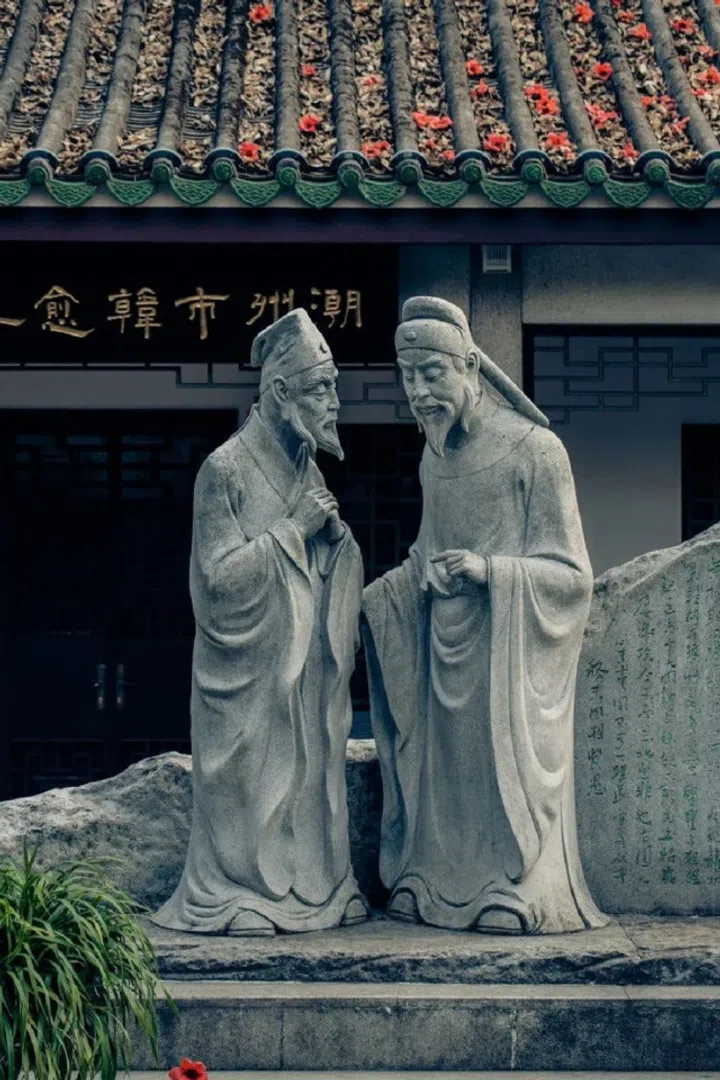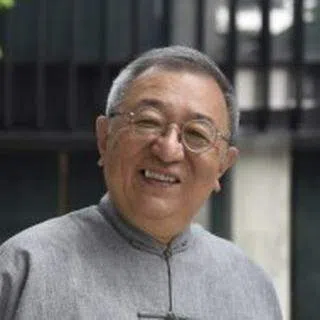The Chaozhou people can boast of Tang dynasty essayist Han Yu
While Chaozhou is acknowledged for great food and the hometown of various famous personalities, it is also the lesser-known place of exile of Tang dynasty essayist Han Yu (韩愈), who made the best of his time there, writing essays and spreading Confucian teachings.

To Chaoshan people, "Chaozhou" (潮州) is a culturally-charged term referring to "Chaozhou Fu" (潮州府, the administrative district of Chaoshan in Guangdong province from the Sui to Qing dynasties). Roughly spanning the cities of Chaozhou, Shantou, Jieyang and Meizhou in China today, Chaozhou Fu is a picturesque region rich in history and traditions that has produced various luminaries.
Broadly speaking, the Chaozhou people love their food, like most Guangdong people. As the saying goes: "People regard food as their heaven (民以食为天)." This is a basic truth and it's no wonder that it's an oft-repeated phrase. I used to recite a famous quote by former ROC President Chiang Kai-shek when I was little: "The purpose of life is to enhance the life of all humanity; the meaning of life is to create lives that will transcend the universe." It was only in my later years that I realised those highfalutin words actually echoed ancient Chinese sayings about human nature desiring food and sex (食色性也 and 饮食男女) - people must first eat to survive, before reproducing to create offspring. That's how "eating" became of "primary significance".
Hong Kongers love to talk about entrepreneur Li Ka-shing and the late scholar Jao Tsung-I - one has money and the other had wisdom.
Delicacies and notable characters
I think everyone can agree that Chaozhou cuisine is delicious. From delicacies like Chaozhou braised duck, pork belly with preserved mustard and the plethora of seafood dishes whose flavours linger in the mouth, to snacks like Chaozhou hand-pounded beef balls, glutinous rice balls, Chaozhou squid balls, chive dumplings, spring rolls, oyster omelettes... my mouth is already watering!

Other than praising their delicious food, Chaozhou people also like to brag about the notable people who come from the region. Hong Kongers love to talk about entrepreneur Li Ka-shing and the late scholar Jao Tsung-I - one has money and the other had wisdom.
But over the course of history, no matter how much money Li managed to accumulate, wealth comes and goes and is but fleeting. At best, his name will be recorded in Forbes' archives and his fate could just be like the widow Ba Qing as recorded in the Biographies of Commerce (货殖列传) chapter of Records of the Grand Historian (《史記》) - the later generations will only think about how her money was made and where it had gone.
... the most famous person is perhaps not a Chaozhou native but a scholar who was exiled in Chaozhou: Tang dynasty essayist Han Yu (韩愈).

But it is different for Jao. As a prolific author, his name can not only be included in the Biographies of Scholars chapter to be passed on to future generations; his works can also be studied by future generations of scholars and researchers, injecting new cultural life into the world forevermore.
Speaking of notable Chaozhou-related personalities in history, the most famous person is perhaps not a Chaozhou native but a scholar who was exiled in Chaozhou: Tang dynasty essayist Han Yu (韩愈).
Learning to love a place of exile
Hailing from Henan's Heyang (河阳, today's Mengzhou 孟州), Han called himself "Junwang Changli" (郡望昌黎) and was respectfully referred to as "Han Changli" by the later generations. A strong advocate of Confucianism, Han opposed Buddhism and protested against Emperor Xianzong of Tang's reception and worship of the bone of Buddha, advocating the banning of Buddhism, burning Buddhist books and the hailing of Confucianism as the greatest belief system. He angered the emperor for wanting to eradicate a foreign faith which he believed had come from a barbarian origin, and was exiled to Chaozhou, which was at the time a gloomy place infested with crocodiles.
... not only did he not die in Chaozhou, he eradicated the ills of the region and loved the people like a son.

Clearly, Han Yu did not want to go to Chaozhou. He even wrote a poem to his grand-nephew Han Xiangzi asking the latter to collect his corpse if he died there: "In the morning I submitted a letter of petition to the emperor and at night I was exiled to Chaozhou. I wanted to help the emperor eradicate bad things; how can I keep quiet just because I am old and want to cherish the remainder of my life? I look back at Chang'an and only see the Zhongnan Mountains shrouded in clouds. Where is home? The road is treacherous and the snow makes it difficult to walk. Even the horses are reluctant to move. I know you've come because you know this might be my end. Please collect my dead body along the river on the way to the gloomy Chaozhou."
However, not only did he not die in Chaozhou, he eradicated the ills of the region and loved the people like a son. In particular, he revitalised culture and education and promoted Confucian beliefs, enhancing Chaozhou's cultural atmosphere and deeply touching the lives of the Chaozhou people.
During the Northern Song dynasty, Han Wen Gong Temple (韩文公祠) was built in honour of Han Yu. Song dynasty poet Su Shi was later commissioned to write an epitaph on a stele erected at the temple, where he highly praised Han as "an ordinary man who became a role model for thousands of generations and whose words became a code of conduct for all to follow". Su specially highlighted Han's contributions in terms of his writings, which spearheaded the exploration of essays on morality in the ancient texts of the Tang and Song dynasties: "Han Yu's essays reversed the literary decline of eight dynasties; his advocacy of Confucianism saved the world from drowning; his loyalty incurred the wrath of the emperor; and his courage surpassed the generals of three armies. Isn't this a man of righteousness who nurtured all living beings, boldly and independently caring about the prosperity and decline of the nation?"
These teachings influence our cultural consciousness and also encourage us to forge a future. At the end of the day, these are all related to Chaozhou's Han Yu.
Su's words established Han's position in Chinese cultural history and made Chaozhou a part of mainstream culture along the way. Modern scholars examining the cultural transformation of the Tang and Song dynasties agreed as well. Qian Zhongshu said that Han Changli left a mark on the history of the Northern Song dynasty and that his legacy would last forever; Chen Yinke said in the article "Discussing Han Yu" (《论韩愈》) that Han's opposition to Buddhism and belief that China should guard against a faith of barbarian origin guided the emphasis on self-cultivation in the development of Confucian culture after the Song dynasty. Qian Mu even believed that Han was the founder of Neo-Confucianism (宋学) and had established Confucian orthodoxy (道统).

When we read ancient texts from the Tang and Song dynasties, we will undoubtedly come across Han's Shi Shuo (《师说》Discourse on Teachers) and verses such as:
"A teacher is one who transmits knowledge, imparts professional knowledge and dispels confusion."
"Where the Confucian way exists, there the teacher exists."
"A student is not necessarily inferior to his teacher, and a teacher is not necessarily more virtuous or talented than his student. The fact is that one might have learned the Confucian way earlier than the other, or might be a master in his own special field."
These teachings influence our cultural consciousness and also encourage us to forge a future. At the end of the day, these are all related to Chaozhou's Han Yu.
My Chaozhou friends, perhaps you should stop calling him Han Changli and start calling him Han Chaozhou instead.





![[Photos] Fact versus fiction: The portrayal of WWII anti-Japanese martyrs in Taiwan](https://cassette.sphdigital.com.sg/image/thinkchina/3494f8bd481870f7c65b881fd21a3fd733f573f23232376e39c532a2c7593cbc)